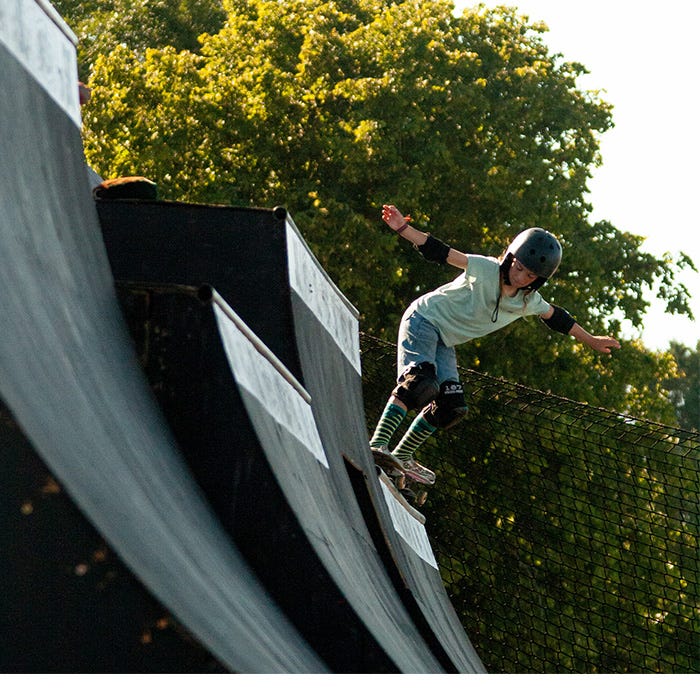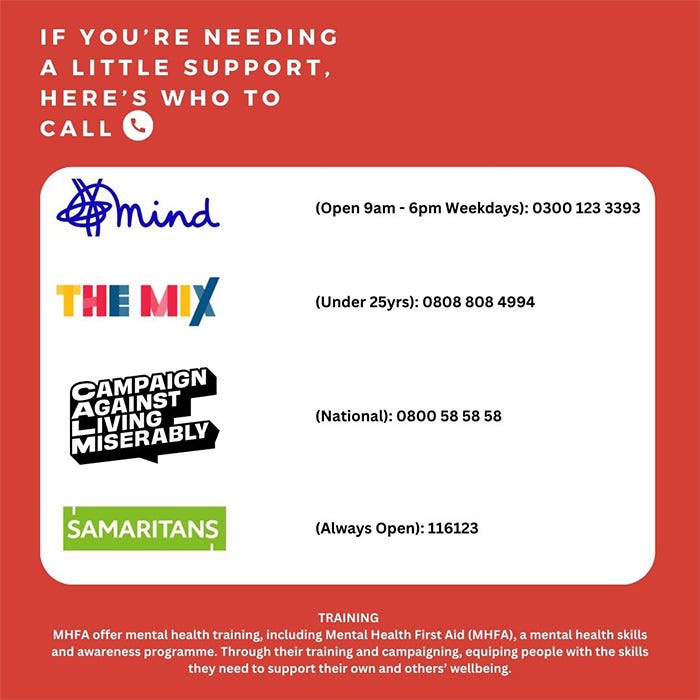Shining Light on Mental Health Awareness Week with SkateHut
In a fast-paced world brimming with endless responsibilities, it's all too easy to overlook the significance of our mental well-being. But, in the midst of life's hustle and bustle, Mental Health Awareness Week emerges as a beacon of hope, inviting us to pause, reflect, and prioritise the most crucial aspect of our existence, our mental health.
SkateHut recently conducted a survey exploring the skateboarding community and mental health battles within. The survey involved reaching out to a sample of 1,000 individuals, including skateboarders of diverse backgrounds, ages, and skill levels.
The results were that skateboarding offers a way to relieve stress, combat anxiety, and alleviate depression. In interviews with skateboarders, they consistently described the feeling of escape and freedom while skating. One person said, "Skating brings me joy and freedom. I can transfer my fears into liberation. It's hard to explain, but skaters understand." Another mentioned how skating helped build confidence and provided a mental escape during tough times. Skateboarding's positive impact on mental health is clear. It boosts confidence, eases anxiety, and releases natural dopamine, nurturing the heart and soul.
Skateboarding and Mental Health: The Benefits of Shredding
Stress Relief - Skateboarding provides a unique way to relieve stress by channelling energy and finding a sense of release through physical activity and focus.
Mindfulness in Motion - Skateboarding demands concentration and being present in the moment. The rhythmic flow and coordination required provide an opportunity for skaters to engage in mindfulness, promoting a calmer state of mind and reducing anxiety.
Boosting Self-Confidence - Mastering new tricks and overcoming challenges on a skateboard boosts self-confidence. With each accomplishment, skaters gain a sense of pride and a belief in their abilities, contributing to improved mental well-being.
Community and Connection - Skateboarding creates a unique community where individuals bond over a shared passion. Connecting with fellow skaters and building friendships based on mutual interests provides a sense of belonging and social support, combating feelings of isolation and loneliness.
Escapism and Freedom - Skateboarding offers an escape from the pressures of everyday life. The thrill of speed, the sensation of flying, and the freedom of movement create a space where skaters can temporarily detach from their worries and find comfort in the moment.
Bridging Divides - Skateboarding bridges cultural, racial, and gender gaps, fostering understanding, challenging stereotypes, and promoting inclusivity. It unites individuals from diverse backgrounds.

Ben Raemers foundation
Ben Raemers, hailed as one of the most remarkable British skateboarders of all time, sadly ended his life in May 2019 at the age of 28. In the wake of this devastating loss, witnessing the sorrow that lingered and fueled by the community's desire to make a difference, the Ben Raemers Foundation emerged.
The aim of the foundation is to provide a way to maintain Ben’s legacy and help prevent anymore loss of suicide. Their aims are to enable the skateboarding community to have opportunities to develop the skills and tools needed to support each other to understand and address mental health.
Mental Health support services in the UK
Samaritans UK
Hotline: 116123 (free call from mobile and landline)
The Mix
Hotline (under 25yrs): 0808 808 4994
HOPELineUK (for under 35 yrs)
Hotline: 0800 068 41 41
SMS: 07786 209697
Childline
Hotline: 0800 1111
CALM
Hotline (National): 0800 58 58 58
Get Connected (for under 25 yrs)
Hotline: 0808 808 4994
SMS: 80849
SANEline
Hotline: 0300 304 7000
Rehab 4 Addiction (Addiction Helpline – open 24/7)
Hotline: 0800 140 4690
Mobile: 0345 222 3508
International: +44 345 222 3508
TRAINING
MHFA offers mental health training, including Mental Health First Aid (MHFA), a mental health skills and awareness programme. Through their training and campaigning, equipping people with the skills they need to support their own and others’ wellbeing.


